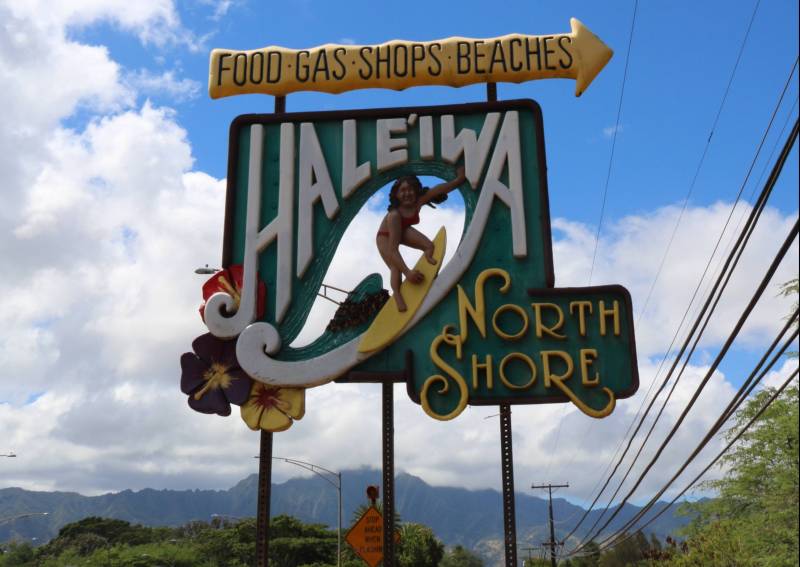Home ownership is worth pursuing, both for investment reasons, and for the freedom it provides. As a renter, perhaps you’ve dreamed of installing solar panels to keep your electricity bill down. Or maybe you just want to be able to paint the rooms a vibrant blue or install double-paned windows instead of jalousies. Or perhaps you just want to buy a home in Hawaii’s robust real estate market because it’s a great investment. Regardless of your motivation, there are a few home financing options for the cash-strapped homebuyer.
Here a few ways you can get moved into a home-sweet-home of your own here in Hawai‘i. After all, wouldn’t it be nice to plant and grow a backyard garden of your own? We’re here to help you find some zero down options for which you may qualify.
Conventional Mortgages
Okay, we’ve cast about for a zero down conventional mortgages and our net came back empty. The reason for this is that conventional mortgages adhere to the guidelines set forth by government-supported entities (GSEs) Fannie Mae and Freddie Mac. Since 1970, these two agencies have been setting national guidelines on the size of home loans, as well as debt-to-income ratios, minimum credit scores, and documentation requirements for lending institutions. It is important to understand that Fannie Mae and Freddie Mac don’t service the loans that they purchase. Lending institutions like Bank of Hawaii would service a conforming loan – what’s considered a conventional mortgage, and these GSEs purchase the loans from them.
Here are some criteria that pertain to mortgages that Fannie Mae and Freddie Mac might purchase from conventional lenders:
- Loans that meet the yearly evaluated conforming loan limit (for more on this, please see our post So You’re Buying Your First Home
- Loans to borrowers who meet the minimum credit score requirements
- Loans that meet the GSE guidelines regarding debt-to-Income ratios
- When the borrower has less than 20% to put down, private mortgage insurance (PMI) is required
According to the National Association of Mortgage Brokers, a credit score below 740 will result in “intense scrutiny and increased fees” in the conventional lending market. It has been the experience of our real estate professionals that anything below 700 would garner a second look, and a credit score below 650 would reach the level of “intense”. A score of 740 may seem high, since FICO scores range from 350 to 800, but keep in mind that the national average score was 699 in 2016.
However, there are some lower down payment options offered by various individual lending institutions. You’ll need to shop around to find them, if you meet the credit requirements and have sufficient income, as described above. A good resource on this is our post Five Good Reasons to Get Pre-Approved Mortgage.
We know this may seem disappointing. You’re living the good life in paradise and you have a great job that you love! Your work-life balance is awesome – surfing on the weekends, walks on the beach after work and barbecuing with friends on the lanai – and you’d like to keep it that way. While plenty of people hold down more than one job in Hawaii to keep pace with the high cost of living, but you’re not there yet. Perhaps your move here cost you a small fortune, or if you’re from here, your student loans or other life events have drained your savings account. For whatever reason, many people find themselves in a position to make mortgage payments, but they just can’t seem to save up the sizable down payment needed to make a purchase. No worries. There are still a few ways to get you into a home of your own, even if you don’t qualify for a conventional mortgage.
USDA Home Loans – A Zero Down Option for Rural Home Purchases

Some parts of Historic Haleiwa and surrounding areas on O’ahu’s North Shore are eligible for USDA financing
The USDA home loan program, formally called the Single Family Housing Guaranteed Loan Program , is often a terrific alternative to a conventional mortgage, since the loans require no money down. The USDA home loan program is backed by the federal government and is designed to assist low- to moderate-income families in purchasing a home.
Here in Hawaii, the USDA program is pretty common, even though it’s restricted to geographically defined “rural” areas. The great news is vast swaths of Hawaii are considered rural areas by the Department of Agriculture. While not every property is eligible, pretty much all of Maui and Kaua‘i, and most parts of the Big island outside of Hilo are considered rural. On O‘ahu, most areas outside of Kailua and Honolulu are also eligible, according to the rural property map, conveniently provided by the USDA. Check it out! You may be able to own a home in surfing’s mecca on the the North Shore of O‘ahu, or chill out in the stunning paradise of Hanalei for zero down.
Here’s a few things to note about USDA loans. The home you wish to purchase must be:
- in a rural, eligible area
- your primary residence
- modest in size and price
The only upfront costs for qualified borrowers is a funding fee of 1% of the home’s purchase price. There is monthly mortgage insurance at a monthly rate of 0.35%.
To qualify for a USDA home loan:
- Your income cannot exceed 115% of the median income in your area. So, for example, if the median family income on Kaua‘i is $62,946, those families earning more than $72,388 would not qualify for a USDA home loan. On Maui, the median annual household income is currently $83,504, so if you earn more than $96,000 a year, you will not qualify for a USDA loan.
- Debt-to-income qualifying ratios to secure a USDA home loan are 29/41. This means that your mortgage payment (including principal, interest, mortgage insurance and other fees) cannot exceed 29% of your gross monthly income; and also, that your total monthly expenses, including your mortgage payment, cannot exceed 41% of your gross monthly income. If you have a lot of debt or monthly payment obligations, like student loans or alimony, then this will reduce the amount you can borrow in the USDA home loan program, sending it below 29% of your gross monthly income.
- While the USDA doesn’t adhere to a credit score minimum, most borrowers have a FICO score of 660 or higher.
Let’s face it — we love living here because of the lifestyle. We get to live where millions come to vacation every year! Many Hawaii residents are more than happy to live outside of the hustle and bustle of the city. The USDA deems a lot of areas rural – and we love it! The pace of life is slower in many parts of the island, and like the bumper stickers say, “Slow down, brah! This ain’t the mainland!”.
For examples of debt-to-income calculations, and for a more details about the USDA home loan program, please check out our post entitled Is An FHA or USDA Home Loan Right For You?
VA Loans – Zero Down for Those Who Qualify and Are Eligible

The VA or Department of Veterans Affairs home loan benefit is a zero down lending option for qualified and eligible veterans and active duty service members, National Guard members, and reservists. Officially called the VA Loan Guaranty Program, these low interest loans are guaranteed by the federal government, and offer significant advantages to qualified service members and veterans. To qualify, you’ll need good credit and sufficient income to cover your mortgage payments. In addition, the VA requires a Certificate of Eligibility (or COE). To find out if you’re eligible, we suggest you review the VA’s somewhat complex eligibility requirements, which depend upon your branch of service, length of service, and when you served.
According to the Department of Veterans Affairs website, VA loans can be used not only to buy a home, but also a condo in a VA-approved project. The condo you’re looking to purchase must be on the VA approved list, conveniently published online for your reference. The VA loan program additionally offers the opportunity to build, improve or refinance an existing mortgage. Ultimately, the program is designed to make home ownership accessible. So if your credit score isn’t perfect, not to worry. Most VA lenders adhere to credit score benchmarks, but it varies from lender to lender. Most VA-approved lenders are looking for a minimum credit score of 620.
FHA – A Low Down Payment Alternative
The Federal Housing Administration (FHA) offers government-backed home loans for as little as 3.5% down, with competitive interest rates to borrowers. There is a 1.75% funding fee for the loans, but the FHA credit and income requirements can be favorable. Qualifying debt-to-income ratio for FHA loans can go as high at 47/57 (so 47% of your gross monthly income can be applied to your mortgage, with as much as 57% applied to your monthly debt service, as a whole). Down payments of as much as 10% can be required, depending on the buyers’ credit rating. However, a credit score over 580 meets the 3.5% down-payment guidelines. While that’s a minimum score needed for an FHA loan, note that the average score for FHA borrowers in 2016 was 686.
For more information about VA home loans and FHA lending, check out our posts: What Qualifies for a VA Loan? and So You’re Buying Your First Home. As with all investments of this size, we recommend that you consult with a registered loan professional who can help you to find the program that best fits family’s needs.

Christopher a Kanehilua-Freitas Sr
May 26, 2019
THERE IS NOTHING IN HERE HELPING US KANAKA AFFORD A HOMES ANYWHERE ON OUR AINA SOMETHING IS VERY WRONG HERE THIS IS OUR HOME AND THERE IS NO AFFORDABLE HOMES FOR US EVERY OUTSIDE PERSON NOT FROM HERE HAS HOMES SEPT US SAD!